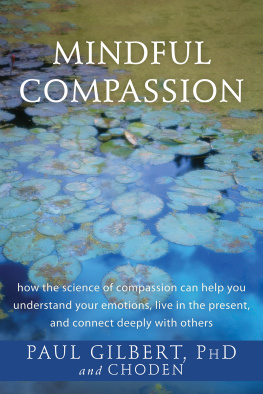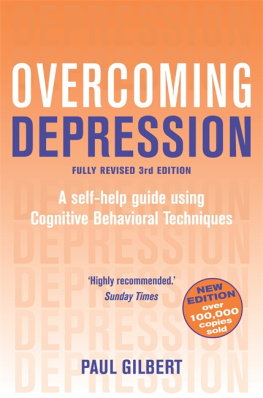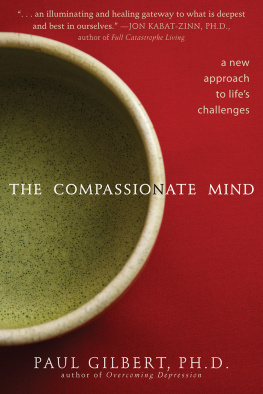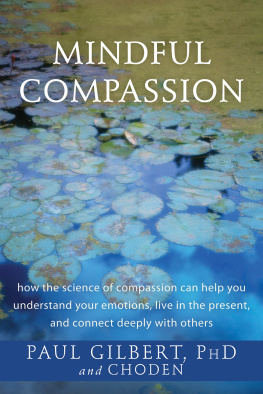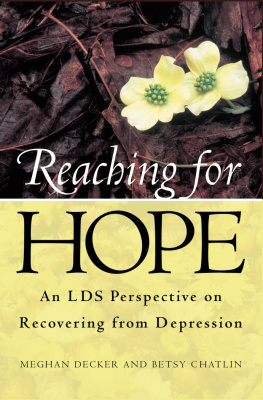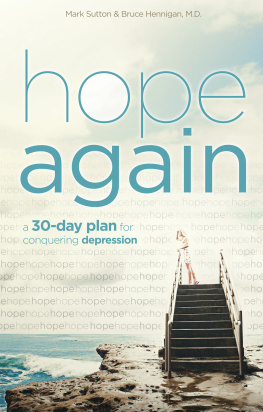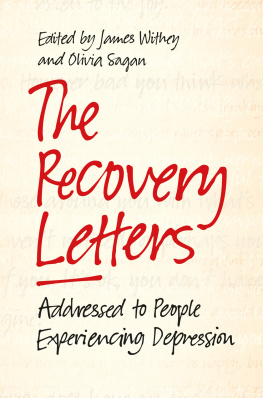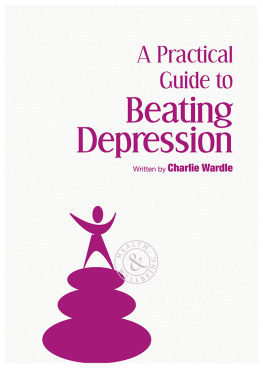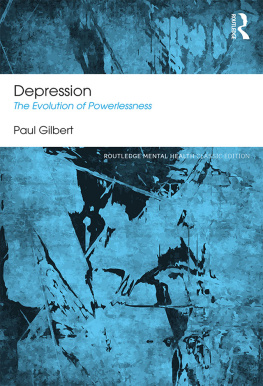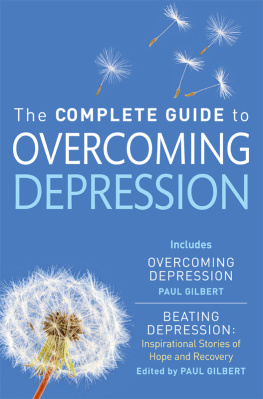BEATING DEPRESSION

Constable & Robinson Ltd
5556 Russell Square
London WC1B 4HP
www.constablerobinson.com
First published in the UK by Robinson,
an imprint of Constable & Robinson Ltd, 2011
Copyright for introduction to this anthology rests with Paul Gilbert
Copyright for contributions to this anthology rests with individual contributors. Printed by permission of the contributor.
The right of Paul Gilbert and the contributors to be identified as the authors of this work has been asserted by them in accordance with the Copyright, Designs and Patents Act 1988
All rights reserved. This book is sold subject to the condition that it shall not, by way of trade or otherwise, be lent, re-sold, hired out or otherwise circulated in any form of binding or cover other than that in which it is published and without a similar condition including this condition being imposed on the subsequent purchaser.
A copy of the British Library Cataloguing in Publication data is available from the British Library
Important Note
This book is not intended as a substitute for medical advice or treatment. Any person with a condition requiring medical attention should consult a qualified medical practitioner or suitable therapist.
ISBN: 978-1-84901-402-1
eISBN: 978-1-84901-927-9
Typeset by TW Typesetting, Plymouth, Devon
Printed and bound in the EU
1 3 5 7 9 10 8 6 4 2
With thanks to those who have generously and courageously shared their experiences in this book.
Introduction: Personal tragedies and triumphs in the battles with depression
Depression haunts the lives of many millions of people throughout the world. Some estimates put the number at well over 350 million people suffering depression at any one time. This may actually be an underestimate. The World Health Organization suggests that depression will be the second most burdensome disorder in the world by 2020, and for women aged between fifteen and forty-five its already the most common and debilitating of disorders. In addition, while many of us might not reach the full monty of depressive symptoms we can have many depression-related symptoms that interfere with our lives, confidence and sense of well-being. In fact, depression is something that we can all experience to a lesser or greater degree at some time in our lives. Scientists also know that animals too can behave and look as if they are depressed. This is important because it tells us that a depressed state of mind can occur in many living things and, as we will talk about shortly, this can give us clues about the depressed mind.
In these inspirational stories eight people share their journeys into and out of depression. You will read how they fell into depression, became caught in it, and then how they began to find ways to emerge from it. By reading other peoples stories we come to recognize that depression is not one thing. In many ways each persons depression is unique because each of us has a particular set of genes which vary slightly from one another and we have different life experiences that shape us in all kinds of ways, too. In fact, much of the way we have become the people we are was outside our control. For example, I often say to my clients that if I had been swapped as a baby and brought up in a Mexican drug gang the chances are I would either be dead or have killed people myself and be in jail or possibly be very rich! There is no way at all that this version of me this Paul Gilbert who has been lucky enough to study in a relatively free Western world and become a psychologist, writing this chapter would exist. This Paul Gilbert is just one version of many possible versions, but I actually did not have that much choice over which one would become possible. Its the same for all of us. If we think about it, we did not choose our genes: they came from our parents. We did not choose the kind of brain that we have. Our brains have been shaped by evolution and we, like many other animals, are set up to want certain things such as good food, a sense of safety, and being valued and wanted by others. Also we, like other animals, have certain basic emotions designed by evolution and built by our genes. We can become anxious when threatened, angry when thwarted and submissive when in conflict with those more powerful than ourselves. Our background shapes our brain, the values that we endorse and the things we believe about ourselves and others.
Once we understand this we can stand back from our depressions and recognize that blaming ourselves for depression doesnt make any sense. Depression is nothing to do with character weakness or failing or any of those things. Depression affects the rich and poor, the bright and the less intelligent, the kind and the selfish, the old and the young. Depression occurs because our brains switch into a particular pattern. As we will see there are many reasons that can cause it to do that.
In fact, in 1978 I suffered my own depression that was linked to various early life experiences and triggered by a set of complex, and unexpected combination of events. It began with anxiety in unusual (for me) situations especially those associated with being trapped, such as in shops, queues or at dinner parties. It was soon marked by problems sleeping, seeing life as pointless, hidden rage and with various suicidal ideas. However, luckily for me I had studied depression as a research psychologist and was able to see that our brains are capable of generating all kinds of patterns like this. When we are happy, anxious, hungry, contented, in love, in mourning, or impulsive these all reflect patterns in our brain (which could be called brain states or states of mind). Depression is a pattern in our brain that emerges for many, many reasons. However, depression is not the real me or you: it is a pattern or state that can emerge in us, because we are creatures of multiple states and complexions. Evolution built us that way, built us so that we are not one club golfers.
So we are capable of great cruelty and great compassion, quiet confidence and paralysing fear, empathic forgiveness and vengeful anger, reflective thoughtfulness and impulsive thoughtlessness. Sometimes we can even try to define different types of personality within us; the perfectionist, the worrier, the avenger, the critic, the artist, the angry demanding child and so on. We recognize that we can move in and out of these personality-like states of mind. So we need to first think of depression as a brain pattern, a state that is operating through oneself, but is not oneself. After all, water can carry a medicine or poison but water is not the medicine or poison. So taken was I by this view that my first book in 1984 was called Depression: From Psychology to Brain State. I wanted to explore how our own psychology, our own ways of thinking and the life events we encounter can affect us by changing patterns in our brains and can trigger all kinds of depressed patterns in us. This helped me keep my depression slightly at arms length.
The nature of depression
Given these preliminary thoughts, my role in this opening chapter is to offer an overview, a road map if you like, of depression so that you can use it to explore the personal stories offered here. Now, I have already mentioned that depression has many different textures and experiences to it, but even so there is a range of symptoms that typically go with being depressed. Firstly, people lose their motivation to do things, which is partly because they feel very tired a lot of the time. Rather than looking forward to things we often have a feeling of dread. Our emotions change, too. Positive emotions such as enjoying and savouring good things such as a film, meal or a party seem to disappear or get toned down, whereas more unpleasant emotions such as anxiety and anger or irritability increase.
Next page

